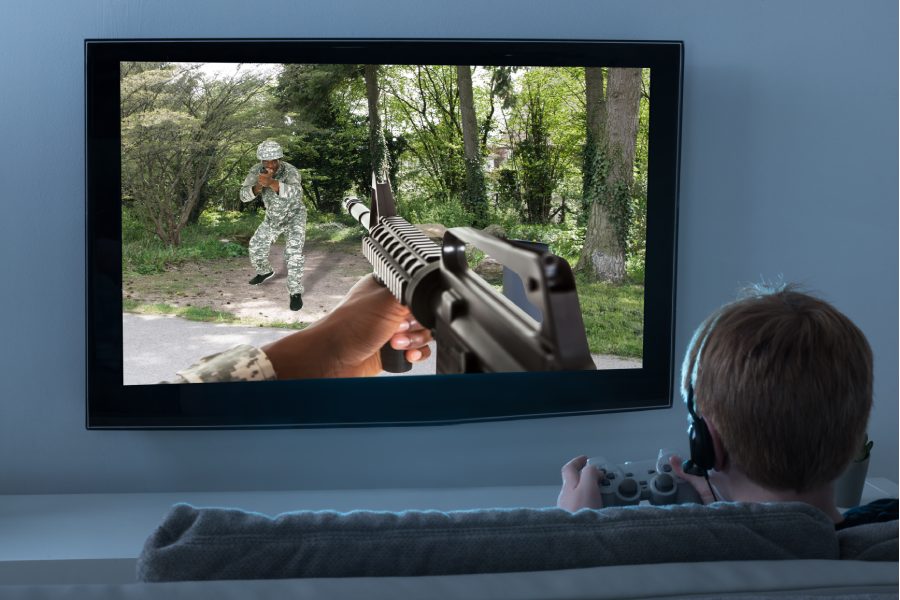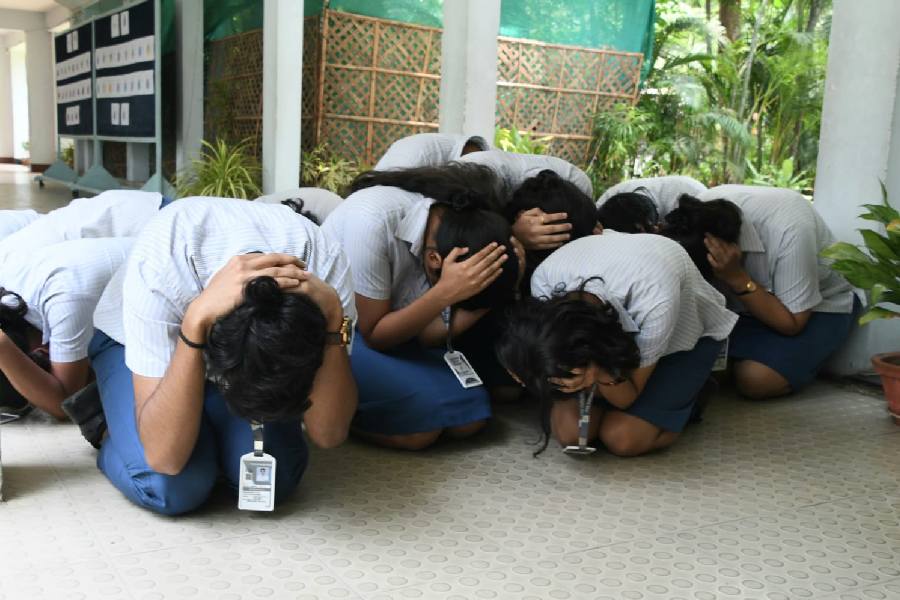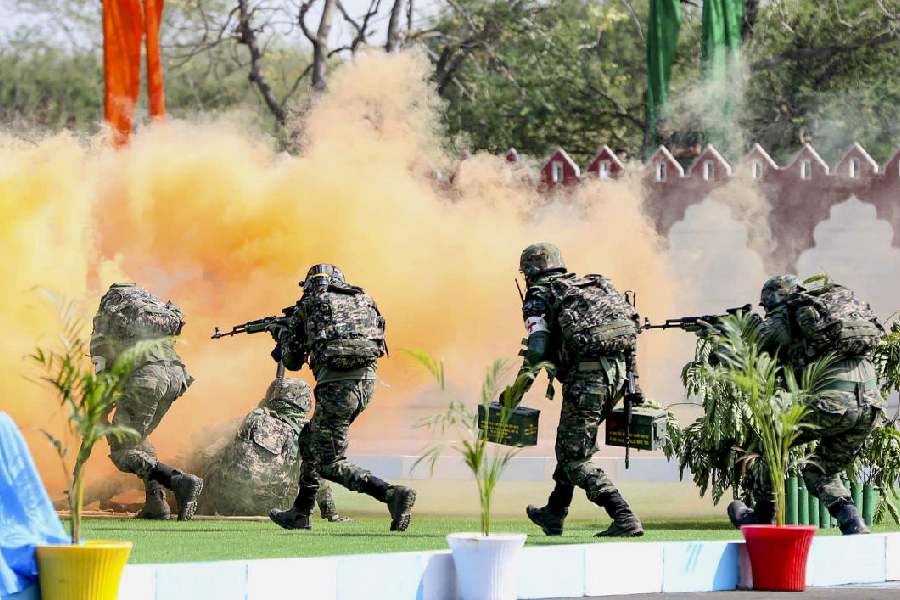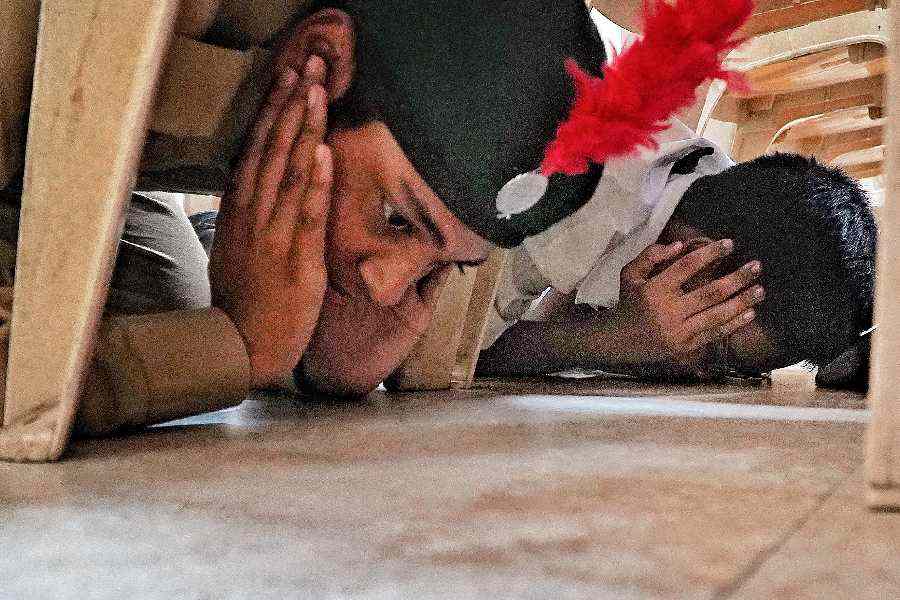“Are we going to die?”
Soham Mazumdar was taken aback when his eight-year-old daughter asked him this question while returning from school on Thursday. Like many others, her school had conducted a mock drill, part of a city-wide exercise to promote emergency preparedness. But what the children took home from it wasn’t just safety instructions; it was also fear. My Kolkata spoke to mental health experts to understand how young children can be prepared mentally and with sensitivity.
‘Prepare yourself first’
With growing geopolitical tensions making headlines, children are increasingly being exposed to shocking news, often without the maturity or context to process it. For many parents, explaining these complex situations, while managing their child’s anxiety, is becoming a challenge.
Kolkata-based psychiatrist Aniruddha Deb, who has over three decades of experience dealing with children’s and adolescents’ issues, said the first step is for parents to ask themselves: ‘Am I scared?’. “If I’m scared myself, I can’t make my child feel safe. Children pick up the signs very quickly when we’re not telling them the truth. So, first, we must work on our own anxieties,” he stated.
‘Make sure you balance it out’
According to Deb, it’s important to strike a balance — neither sugar-coating reality nor painting an apocalyptic picture. “This is a state of preparedness, not a state of war. Tell them that these drills are to ensure we know what to do if something were to happen. Most likely, nothing will happen. And we’re here to protect you,” he said.
He adds that schools have a role to play too, but their efforts must be coordinated. “If schools want to address this seriously, they should bring in civil defence or military experts. Otherwise, teachers should reinforce the messages parents give at home.”
‘Tone it down for them’

‘For very young children, especially those under eight, war might mean something out of a video game or cartoon,’ said psychologist Salony Priya Shutterstock
Salony Priya, a senior psychologist and founder of Ummeed, a child development centre, emphasised the importance of age-appropriate conversations. “For very young children, especially those under eight, war might mean something out of a video game or cartoon. So first, ask them: What do you understand about war? If their idea doesn’t involve real-life violence or death, there’s no need to introduce that,” she said.
Look for signs
Pre-teens and teenagers absorb a lot through news, conversations at home, and social media. “They may not always ask questions directly, but you’ll see signs, excessive worrying, trouble sleeping, and reluctance to let parents leave the house. That’s when you need to gently engage,” Priya explained.
‘Don’t deny it’

Students of Future Foundation School, Tollygunge, during a drill Amit Datta
One of the biggest mistakes parents make, she warned, is to deny the situation. “When you say things like ‘Don’t worry, nothing will happen,’ you’re shutting down the conversation. Children then turn to their imagination, which is often far worse than reality. And if they feel unheard, the fear comes out in other ways — stomach aches, nightmares, or silence.”
Instead, she advises reassuring children with facts and context. “Show them on a map where the actual conflict is. Explain that our city has the police, the army, and other systems in place to keep us safe. Don’t promise that nothing will ever happen — but do promise that if something does, there’s a plan.”
This clarity extends to school safety drills as well. “Children should know this is part of good civic sense. Just like following traffic rules or using crosswalks. It's not about panic — it’s about being smart and safe together as a nation,” said Priya.
Vitally, both experts cautioned against letting religion or politics creep into these discussions, especially in school environments. “This is a time to reinforce values — discipline, dignity, and mutual respect. Let children know that their school is a neutral space, and the focus is on keeping everyone safe and united,” Priya said.
Finally, both experts agree that communication is key. “Be available, be open, and above all, listen. Your child doesn’t need you to have all the answers. They just need to know you’re there for them,” summed up Deb.

